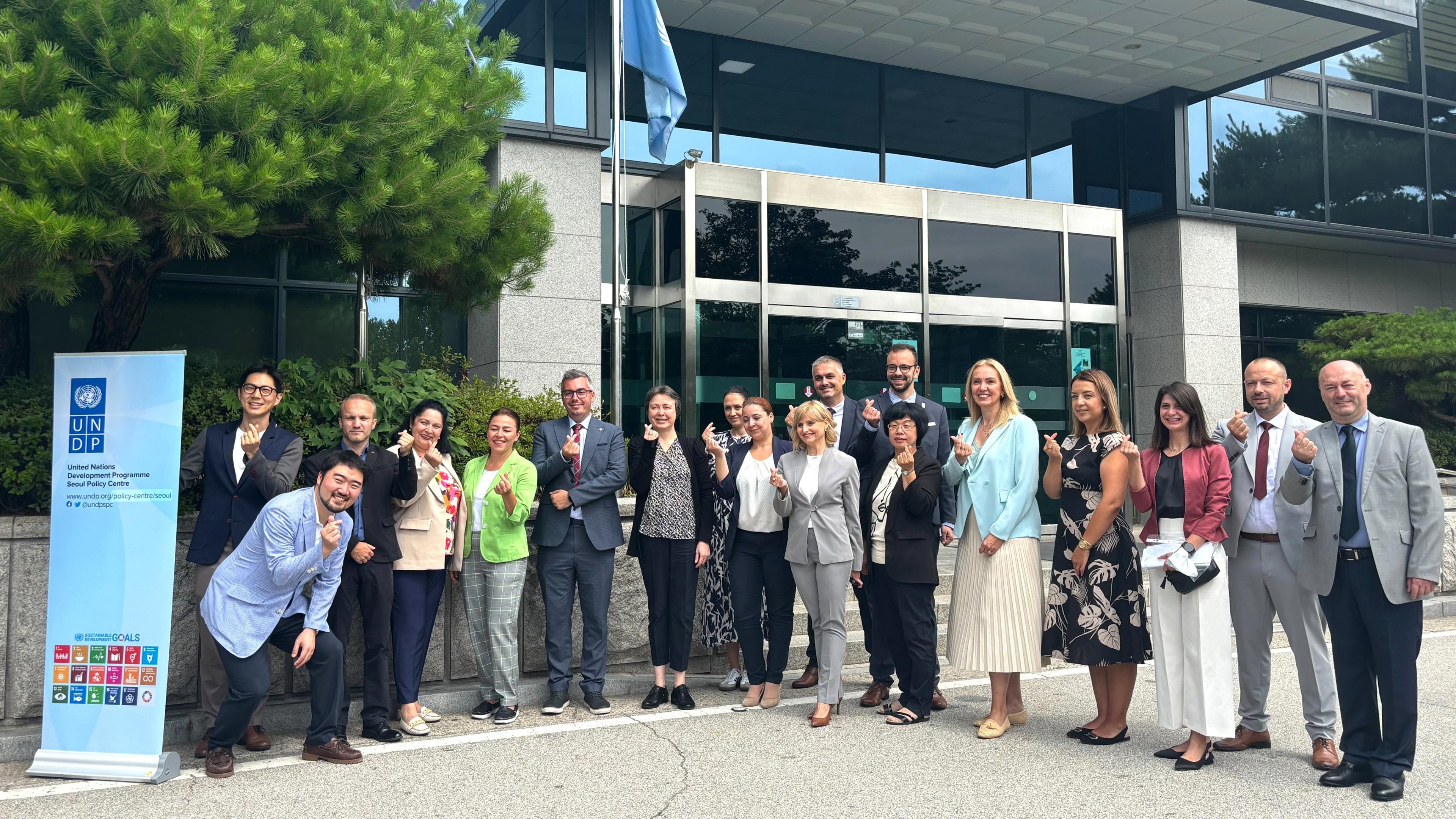North Macedonia delegation visits Republic of Korea to strengthen partnership on gender-based violence in the digital sphere
June 28, 2024

UNDP Seoul Policy Centre (USPC) hosted a study visit on 23-28 June 2024 from the Ministry of Interior of North Macedonia and UNDP North Macedonia as part of the SDG partnership on sexual and gender-based violence (SGBV) in the digital sphere which aims to enhance North Macedonia’s response to technology-facilitated gender-based violence (TF GBV) through the exchange of best practices and lessons learned from counterparts in the Republic of Korea (ROK).
The delegation first visited the Seoul Metropolitan Police Agency, where lessons were drawn from the operational aspects of Korean police work, including the 112 Emergency Dispatch & Operation Command Center and the Traffic Information Center. Direct exchanges on the latest technologies adopted by the Korean police provided valuable insights on efficient policing methods.
As victims/survivors of TF GBV suffer from non-consensual distribution of images and videos on the internet, the North Macedonian delegation visited the Advocacy Center for Online Sexual Abuse Victims (ACOSAV) under the Women’s Human Rights Institute of Korea (WHRIK) which collaborates with the ROK’s Ministry of Gender Equality and Family, Korean Communications Standards Commission, and Korean National Police Agency to support the victims of digital sex crimes by providing services that encompass counselling, deletion of non-consensually distributed images/videos, monitoring of re-distribution and relaying to law enforcement, legal and medical support services. To enhance efficiency in these efforts, ACOSAV has established a partnership this year with the National Center for Missing & Exploited Children of the United States to collaborate on the deletion of sexually exploitative material hosted on overseas servers.
Following warm greetings from Bora Shin, President of WHRIK, Mi-soon Kim, WHRIK Director General, introduced the history, role and efforts of the centre in responding to digital sex crimes and provided an overview of the related policies and support mechanism for victims and survivors, particularly highlighting the robust deletion support system which accounts for 89% of their support services, and their strong efforts in inter-agency cooperation. The visit emphasized the importance of the victim/survivor-centred approach in handling cases of digital sexual violence and showcased the crucial role of integrated support services, such as psychological counselling and legal assistance, and the importance of seamless inter-agency collaboration to enable holistic and effective service provision.
Engagements at USPC further enriched the delegation’s understanding of the center’s operations and contributions. USPC’s Governance and Gender Team Lead, Youngchan Kim introduced the Centre’s flagship SDG Partnerships programme, which leverages Korean policy tools and experience to provide catalytic support to partner countries in achieving the Sustainable Development Goals. He further elaborated on the work of USPC's Governance and Gender Team, specifically focusing on efforts to promote transparency and accountability, and address gender-based violence.
At the Police Science Institute of the Korean National Police University, the delegation explored the range of research on advanced investigation methods. Taehyung Kwon, Director of the Public Safety AI Research Center helped deepen the delegation’s understanding of the latest investigative technology and equipment, including AI-based data analysis and 3D technology for customized equipment and detailed image analysis based on the collected data. The delegation also gained hands-on experience in portable gas and DNA detectors that enable accelerated on-site investigations. Witnessing these advanced technologies in action, the delegation saw firsthand how the ROK actively adopts cutting-edge technologies to improve public safety.

The final stop was the Sunflower Center, dedicated to providing integrated support to victims of SGBV. Yun-Cheng Chang, Senior Inspector and Team Lead in the Investigation and Legal Support Team at the Northeastern Gyeonggi Sunflower Center, introduced the center's holistic approach, which includes medical, psychological, and legal assistance. She shared personal experiences of addressing SGBV cases, including in the digital sphere, and explained how the Sunflower Center can provide necessary support to victims. The visit underscored the importance of empathy and integrated support services to effectively address the needs of victims and prevent secondary victimization.
Throughout the visit, the North Macedonian delegation engaged in productive discussions with their Korean counterparts, sharing experiences and exploring potential areas for collaboration. The knowledge and experiences gained during this visit are expected to significantly enhance the ongoing efforts by the North Macedonian Ministry of Interior and Police in preventing and combating SGBV in the digital sphere. The study visit highlighted the importance of strong international partnerships and continuous police capacity building to end violence against women and girls and achieve SDGs.
* UNDP Seoul Policy Centre (USPC) shares Korea’s tested-and-proven policy tools with other countries through SDG Partnerships. SDG Partnerships provide a combination of support, including partnership development with Korean institutions, seed funding, technical assistance, and policy advisory services. It utilizes UNDP’s global network of country offices and the policy expertise and know-how of partner organizations.

 Locations
Locations








